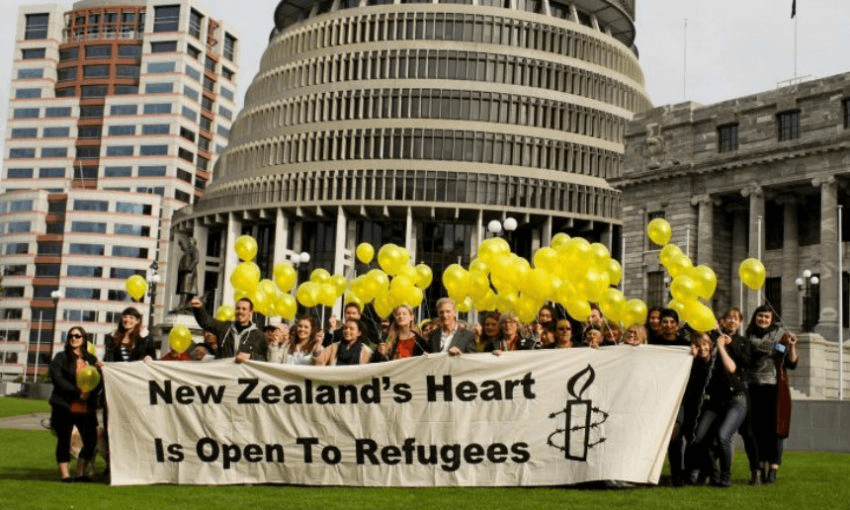At any time, but especially as New Zealand’s Muslim and migrant communities recoil from an inhuman attack, you can play a role, writes Lucy Lawless
I wrote this in Nov 2018 and am now infuriated and ashamed that I didn’t get it published. Want to know how to actually be part of a healing process?
My friend, Jane, runs a refugee education programme. She asked me to come in and do mock job interviews as the adult students there get very little face time with regular Kiwis. That’s surprised me. Aren’t we are all over the place? How could they fail to interact with us?
Until I got involved, it had been years since I’d personally connected with any bona fide refugees. New Zealand only takes 1000 a year and this is set to increase to 1500 by 2020. Given the influx into Europe, it doesn’t sound like many.
One salt of the earth lady I know says, “it’s no good bringing refugees here if we’re just going to stick them in some ‘shitbox in Glen Innes’”. That good lady sees nothing wrong with tearing down state houses in Glen Innes and building scores of $700,000 townhouses, which current residents cannot afford. Market rules okay. But that’s another discussion.
On this day, the interviewees were from all over: Central America, Bhutan, the Middle East. I was given a list of questions that employers might typically ask. What are you good at? What field of work do you want to go into? What are you passionate about?
Several women, mothers all, stated that they wanted to go into early childhood education. Coincidence? Do they really want to do that or does it seem more attainable to people whose qualifications, if any, are void in this country? When pressed, Leila from Syria said she actually wants to study journalism but she has no one to help her with childcare while she studies. She never tells me is that she is a talented artist. She draws portraits, something forbidden in some sectors of the Islamic world but not hers. Had she been raised in another country, I believe she would have self-selected into the arts. Drawing is her bliss yet she never thought to mention it.
In the west, we’ve been raised to explore our potential and indulge our tastes. We forget that art and self-improvement is true luxury. It’s the cherry on top of a safe society. “What are you good at?” They are good at surviving, though they consider this a matter of luck, not management. When your mission for the day is to retrieve water for the family without getting shot, you don’t have time to contemplate your navel.
Leila showed me a video of the four-storey house her grandfather owned in Damascus where she and her extended family grew up. It is now a box of rubble, like on the news. No wonder these newcomers from war-torn societies, looked confused when I ask them, “what are you passionate about?” I realise what they are passionate about is not getting bombed. Not having their kids massacred by paramilitaries. They’re passionate about not being raped by invaders – true story. I guess a shitbox in Glen Innes might look pretty good to them.
Still, life in New Zealand is a massive transition. It’s probable these women would never have left their homes had bombing and wholesale murder not overwhelmed their cities. Their families are scattered to the four winds or dead. Resettled, they experience isolation. They are all learning English but do not know how to crack the social code of what really is a pretty benevolent society. But all I met are hungry for inclusion.
I’m told that the children of refugees tend to do rather well. Perhaps that’s because their parents let them take nothing for granted. It would make it so much easier for those kids if their parents’ transition were smoother.
It doesn’t take any time out of our day to greet an obvious newcomer with a smile. Refugees from systematically abusive regimes often have deep-seated trust issues. Consistency and kindness from us can help them discover a new way of being.
If you were to, say, find yourself with an empty nest, you might like to connect on a deeper level. The Immigration New Zealand website has a tab that suggests ways to help. Many amazing Kiwis have taken their free time to teach a refugee how to drive, fish or grow vegetables. These are lasting gifts.
Apart from anything else, it’s fun. And one day you’ll be proud that you played a role in their success.
